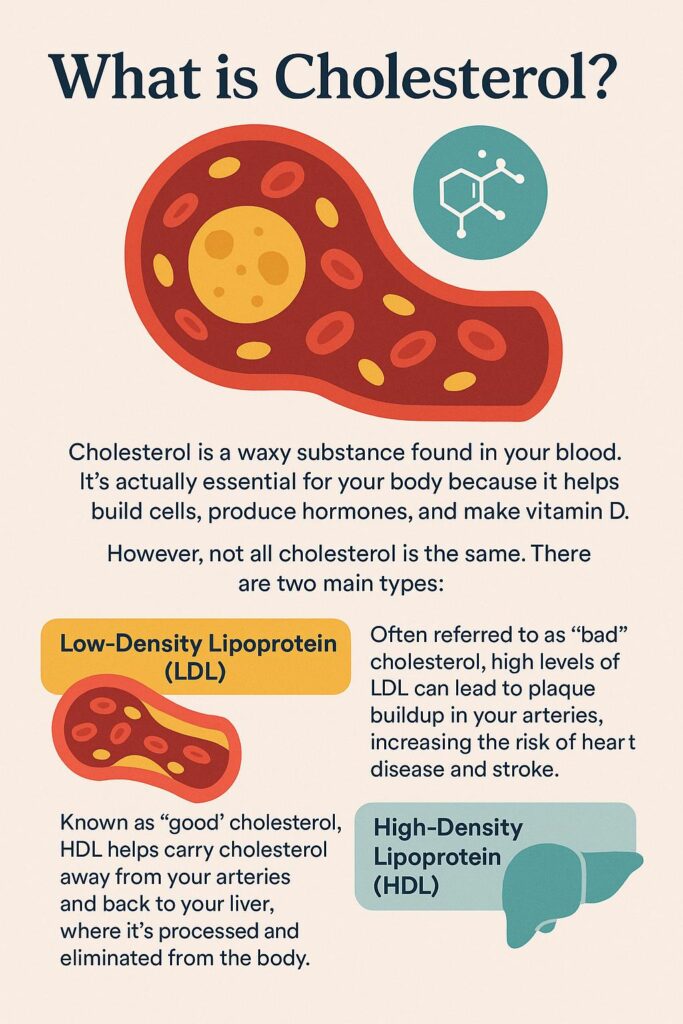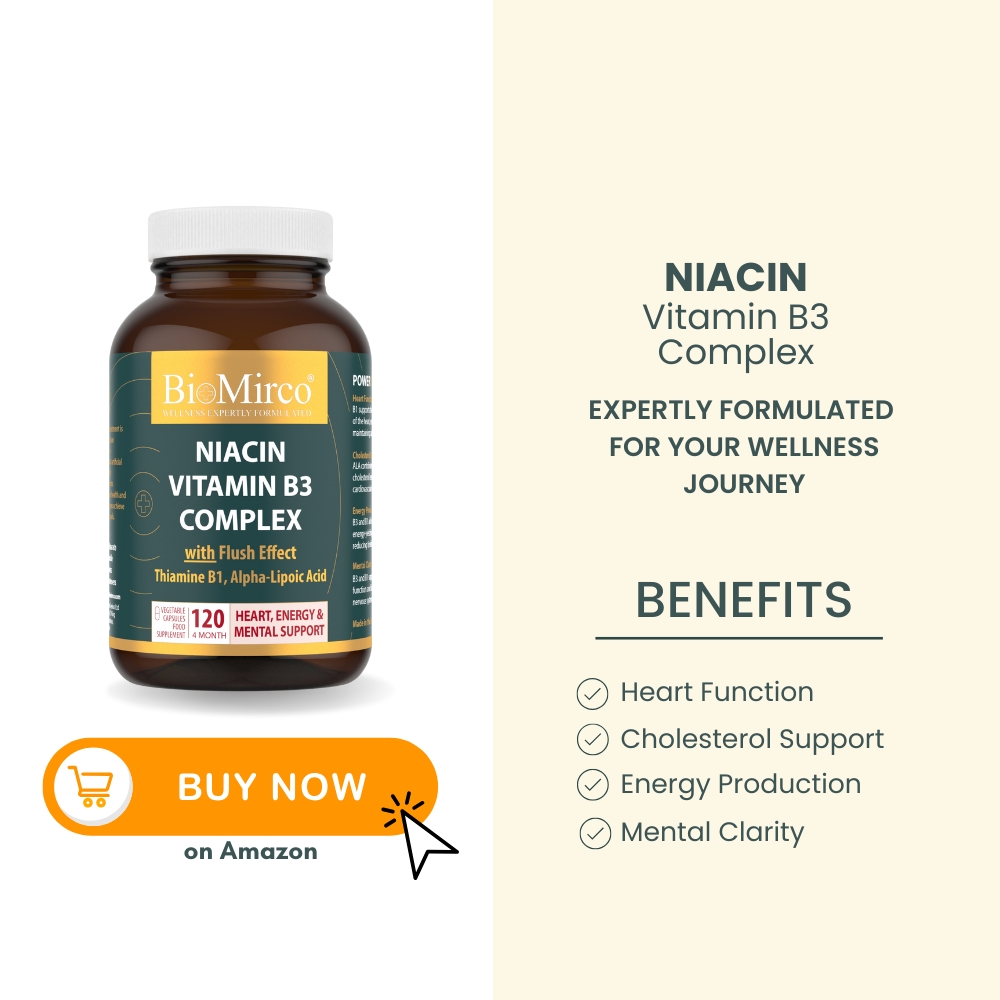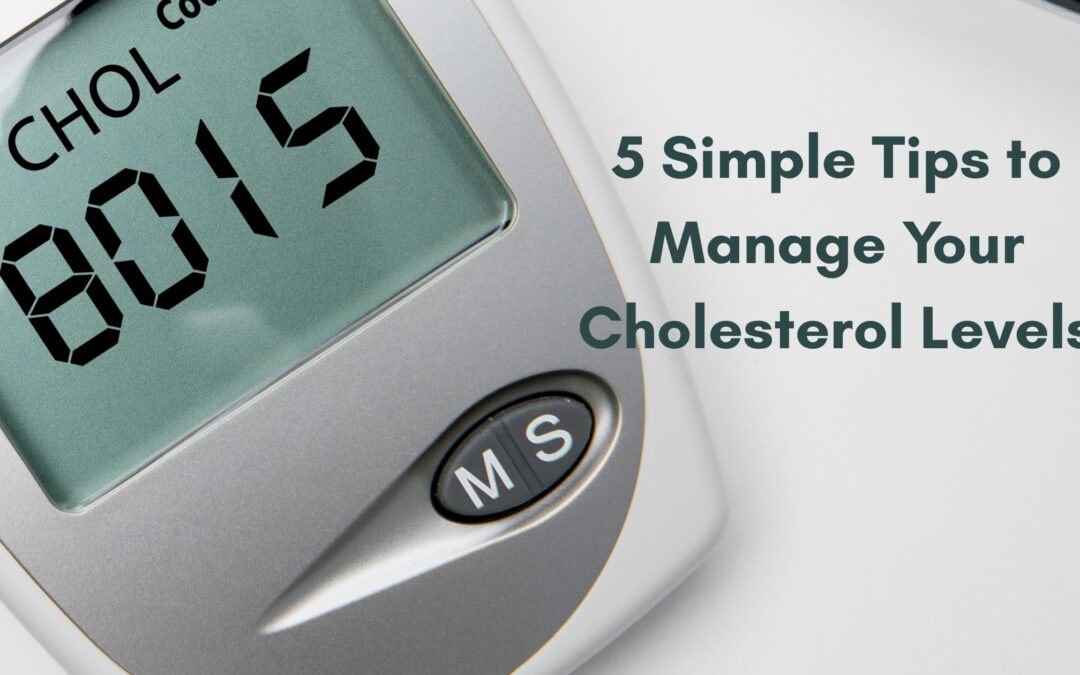Looking to bring your cholesterol levels into a healthier range without fads? Start with food-first, everyday habits — then add targeted tools that make the biggest difference. Below are simple, evidence-led changes you can stack this week.
What is Cholesterol?
Cholesterol is a waxy substance found in your blood. It’s actually essential for your body because it helps build cells, produce hormones, and make vitamin D. However, not all cholesterol is the same. There are two main types:
- Low-Density Lipoprotein (LDL): Often referred to as “bad” cholesterol, high levels of LDL can lead to plaque buildup in your arteries, increasing the risk of heart disease and stroke.
- High-Density Lipoprotein (HDL): Known as “good” cholesterol, HDL helps carry cholesterol away from your arteries and back to your liver, where it’s processed and eliminated from the body.
Balancing these two types is crucial for maintaining heart health.

How Can You Manage Your Cholesterol Levels?
Managing your cholesterol levels involves a few key lifestyle changes:
1. Consider niacin (vitamin B3) — the “flush” form
What it helps: Niacin (nicotinic acid) has a long research history at higher, medical doses for improving the lipid profile. As a consumer supplement, it’s used to support your overall plan.
How to do it well:
Some people experience harmless warmth/tingling/redness (“niacin flush”) for 20–60 minutes.
Quality pick: BioMirco Niacin Vitamin B3 Complex (Niacin Flush) — designed for that classic flush-form niacin experience. Consider pairing with the food-first steps above for best results.
Safety first: Avoid if you have active liver disease, gout, or stomach ulcers. Stop if you feel unwell (e.g., dizziness, severe itch).
Start low (e.g., 50 mg) to assess your personal flush response.
Take with food and a full glass of water; avoid alcohol or hot drinks around dosing.
Build gradually only as tolerated and do not exceed label directions.
2. Fill up on soluble fibre (your LDL helper)
What it helps: Soluble fibre binds bile acids in the gut, helping your body clear LDL (“bad”) cholesterol.
How to do it: Aim for 25–30 g total fibre daily, including 5–10 g soluble fibre. Build meals around oats, barley, beans, lentils, apples/pears, carrots, aubergine, okra — and consider psyllium husk.
Smart swap: Breakfast porridge with walnuts + ground flaxseed.
3. Swap saturated fat for unsaturated
What it helps: Replacing butter, fatty cuts, and coconut oil with olive or rapeseed oil, nuts, seeds, and avocado helps improve blood lipids.
How to do it: Cook with olive/rapeseed oil, snack on a 30 g handful of mixed nuts, and choose leaner cuts of meat or more plant proteins.
4. Choose a Mediterranean-style template
What it helps: A pattern rich in veg, pulses, wholegrains, nuts, olive oil, and fish helps maintain healthy cholesterol levels long-term.
How to do it: Fill half your plate with veg, a quarter with protein, a quarter with wholegrains or starchy veg, and add a drizzle of extra-virgin olive oil.
5. Eat oily fish 1–2 times weekly
What it helps: Omega-3s from salmon, sardines, mackerel support healthy triglyceride levels.
How to do it: Try sardines on wholegrain toast, salmon tray-bakes, or mackerel salad.
6. Plant sterols/stanols when you need an extra nudge
What it helps: Foods fortified with plant sterols/stanols can help reduce LDL cholesterol when taken consistently.
How to do it: Use fortified spreads or yoghurts daily (check labels for serving guidance). Keep the rest of your diet fibre-rich for best results.
7. Add a fibre booster: psyllium husk
What it helps: A practical way to top up soluble fibre.
How to do it: Start with 1 tsp in water before meals and build gradually. Drink plenty of water.
8. Go easy on refined carbs, sugary drinks, and alcohol
What it helps: Helps bring down raised triglycerides and supports heart-healthy weight.
How to do it: Swap sugary drinks for water or unsweetened tea; prioritise wholefoods over ultra-processed snacks.
9. Move daily (and lift twice a week)
What it helps: Regular movement supports HDL (“good”) cholesterol and overall cardiometabolic health.
How to do it: Aim for 150 minutes of moderate activity weekly (brisk walking, cycling) plus 2 days of strength training.
10. Manage weight gently (no crash diets)
What it helps: Even 5–10% weight loss (if needed) can improve lipids.
How to do it: Focus on fibre, protein, and minimally processed foods to stay fuller for longer.
11. Make breakfast work harder
What it helps: A steady, fibre-forward start reduces mid-morning grazing.
How to do it: Oat porridge + ground flaxseed + walnuts; or Greek yoghurt with chia and berries; or a veggie omelette with a side of fruit.
12. Stock a “cholesterol-friendly” snack box
What it helps: Keeps you out of the biscuit tin.
How to do it: Pre-portion nuts, roasted chickpeas, oatcakes with hummus, or fruit with a small handful of walnuts.
Niacin Benefits
Niacin can help increase HDL cholesterol while lowering LDL cholesterol and triglycerides. It’s important to consult with a healthcare professional before starting any new supplement.

Introducing Niacin Vitamin B3 Complex
If you’re looking for a quality supplement to support your cholesterol and overall health, consider Niacin Vitamin B3 Complex. Here’s why it might be a great addition to your health routine:
- Potent Formula: Each capsule contains a therapeutic dose of niacin, designed to support cognitive function and energy metabolism.
- Easy to Take: The small capsules are easy to swallow, making it convenient to incorporate into your daily routine.
- Quality Assurance: Made in the UK, this product meets high-quality standards, ensuring you get the best for your health.
Safety notes (important):
Avoid flush niacin if you have active liver disease, gout or stomach ulcers. Extended-release forms are more associated with liver effects; follow product directions exactly. Stop if you feel unwell.
Advantages of Vitamin B3
- Supports Energy Production: Niacin plays a crucial role in converting food into energy.
- Promotes Skin Health: It can help maintain healthy skin and may assist in reducing skin issues.
- May Aid Cognitive Function: Niacin is also linked to supporting brain health and mental clarity.
Understanding cholesterol and its impact on your health is crucial. By making thoughtful dietary choices, engaging in regular physical activity, and considering quality supplements like Niacin Vitamin B3 Complex, you can take proactive steps to manage your cholesterol levels and support your overall health.
Remember, always consult with a healthcare professional before starting any new supplement, especially if you have existing health conditions or are taking medication.

Please Note:
The information provided in this article is for educational purposes only and is not intended as medical advice. Always consult with a healthcare professional before starting any new supplement, especially if you are pregnant, breastfeeding, have existing health conditions, or are taking medication. Individual results may vary, and it is important to discuss any concerns or questions about your health with a qualified medical provider.
References (evidence-led)
- NHS. How to lower your cholesterol (diet, movement, practical swaps). :contentReference[oaicite:10]{index=10}
- SACN/UK Government. Saturated fats and health (2019). Replace saturated fats with unsaturated. :contentReference[oaicite:11]{index=11}
- EFSA Panel. Plant sterols/stanols 1.5–3 g/day lower LDL by ~7–12%. :contentReference[oaicite:12]{index=12}
- Meta-analyses on psyllium and lipids (LDL reduction). :contentReference[oaicite:13]{index=13}
- Aerobic exercise and HDL/triglyceride improvements. :contentReference[oaicite:14]{index=14}
- NIH ODS. Niacin fact sheet (safety; extended-release considerations). :contentReference[oaicite:15]{index=15}

